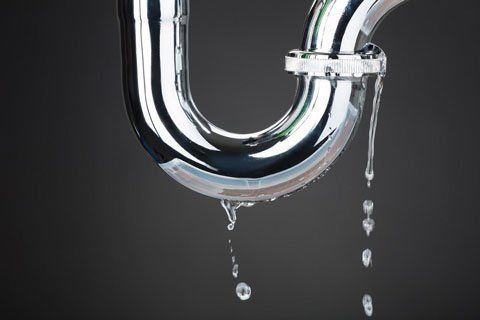6 Ways to Discover Surprise Water Leakages in Your Home
6 Ways to Discover Surprise Water Leakages in Your Home
Blog Article
We have found the article relating to Finding hidden leaks below on the web and think it made sense to write about it with you over here.

Early detection of leaking water lines can mitigate a potential disaster. Some small water leaks might not be visible.
1. Analyze the Water Meter
Every residence has a water meter. Inspecting it is a guaranteed manner in which aids you uncover leakages. For beginners, turn off all the water resources. Make certain no person will purge, use the faucet, shower, run the cleaning device or dishwasher. From there, go to the meter as well as watch if it will certainly transform. Considering that nobody is using it, there need to be no motions. If it relocates, that indicates a fast-moving leak. Similarly, if you spot no changes, wait a hr or two and examine back once more. This means you may have a sluggish leak that could also be below ground.
2. Check Water Usage
If you detect sudden modifications, despite your usage being the same, it suggests that you have leakages in your plumbing system. An unexpected spike in your bill indicates a fast-moving leakage.
At the same time, a stable boost on a monthly basis, despite having the very same habits, reveals you have a slow-moving leakage that's also gradually escalating. Call a plumber to completely examine your home, especially if you feel a warm location on your flooring with piping underneath.
3. Do a Food Coloring Test
30% comes from toilets when it comes to water intake. Examination to see if they are running effectively. Decline specks of food color in the container and wait 10 mins. If the shade in some way infiltrates your dish during that time without flushing, there's a leakage in between the tank and bowl.
4. Asses Exterior Lines
Do not forget to check your exterior water lines as well. Must water permeate out of the connection, you have a loose rubber gasket. One little leak can throw away loads of water and also spike your water bill.
5. Examine the situation and inspect
House owners need to make it a practice to inspect under the sink counters and even inside cabinets for any kind of bad odor or mold growth. These 2 warnings suggest a leak so punctual attention is required. Doing routine inspections, even bi-annually, can save you from a major problem.
If you understand your home is already old, keep a watchful eye on your heating systems, hoses, pipes and so on. Look for stainings and deteriorating as most devices as well as pipelines have a life span. They will additionally normally deteriorate as a result of tear as well as wear. If you presume dripping water lines in your plumbing system, don't wait on it to escalate. Call a professional plumber right away so you don't wind up with a dreadful mess in your house.
Early discovery of dripping water lines can alleviate a possible catastrophe. Some tiny water leaks may not be noticeable. Inspecting it is a surefire method that helps you uncover leakages. One small leak can lose loads of water and increase your water bill.
If you suspect leaking water lines in your plumbing system, don't wait for it to escalate.
How to Know If Your Home Has a Hidden Leak
Water Meter Reveals Inexplicable Water Usage
If you’d like to test whether or not there’s a leak somewhere in your home, you can do this using your water meter. Here is how to conduct the test:
Don’t use any water in your home for at least 30 minutes; this also means not turning on faucets or water-using appliances.
Go outside, and check your water meter for activity.
If your water meter shows that there was activity, even though no one was using any water, this proves that there is a leak in your home.Visible Mold or Mildew Growth
Leaks behind walls create moist, dark environments that allow mold and mildew to grow and thrive. Eventually, you might see mold growth forming on the wall closest to a hidden leak.
If mold is growing in an area that receives a high amount of moisture, such as a bathroom, it may simply be an indication that better ventilation is needed. However, if you see mold growth on a wall or the ceiling in an area where you would not expect, you probably have a hidden leak.
Musty, Mildew Odor
Sometimes you might not be able to see the mold or mildew that is growing as a result of a leak. However, the smell can give the problem away just as easily. If you catch a whiff of something musty, there’s a good chance that old water is collecting somewhere in your home that you can’t see.
Stained/Warped Walls, Ceilings, or Floors
When your home soaks up water, a variety of red flags can become visible, including ceiling stains, bubbling drywall, warped walls, and sagging floors. While these issues can be caused by excess humidity, they can also be signs that a pipe or plumbing connection has started leaking behind your walls.
Inexplicably High Water Bill
After a while, you get a general sense for what your water bill should be. If you own a pool or sprinkler system, your bill will tend to be higher during summer. However, if you receive a water bill that seems especially high, and you can’t figure out what caused it, then you may have a hidden leak somewhere that’s increasing your bill.
https://www.plumbingjoint.com/blog/2019/july/how-to-know-if-your-home-has-a-hidden-leak/

I am just very curious about Locating water leaks and I really hope you appreciated the entire blog entry. I beg you take the time to distribute this blog post if you liked it. Thanks a lot for your time invested reading it.
Report this page